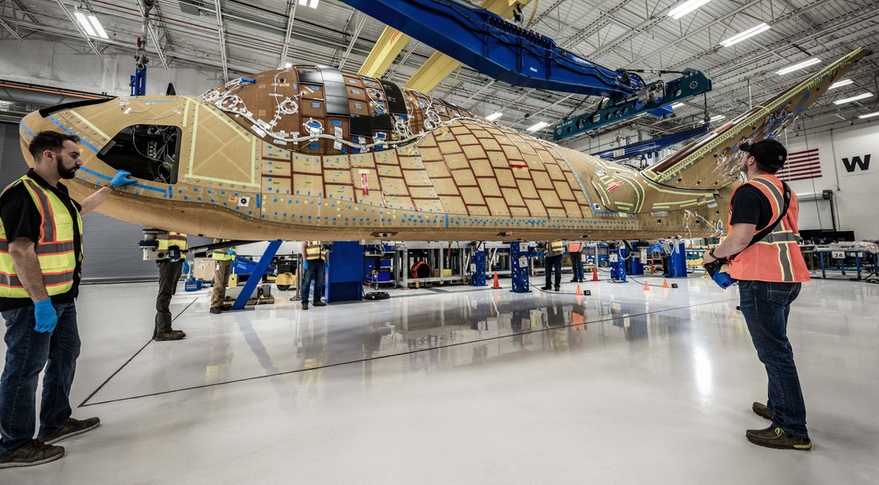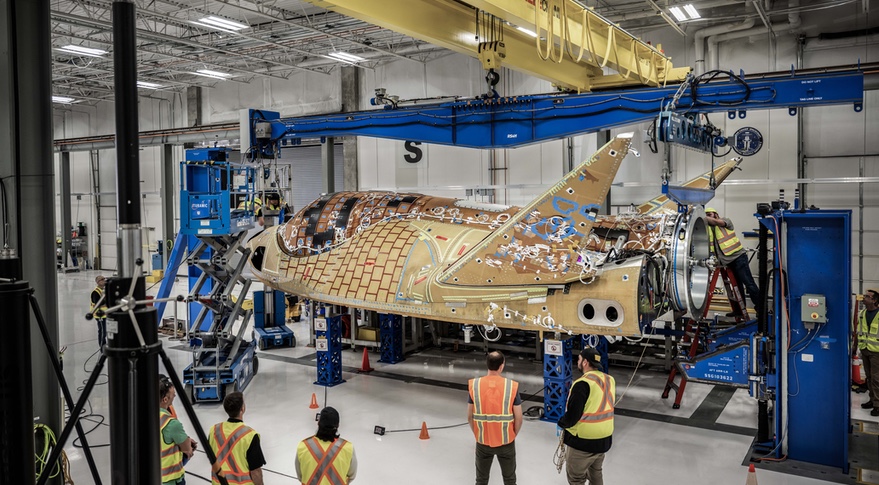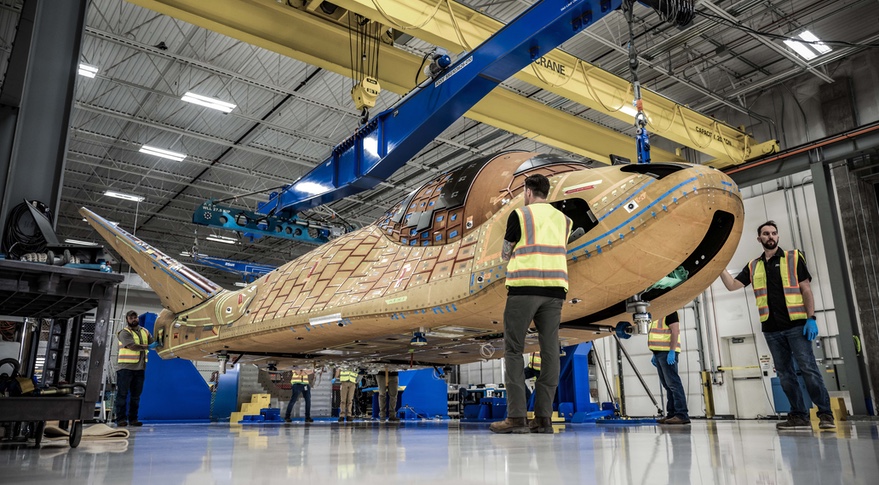WASHINGTON — Sierra Space says it is making good progress on its first Dream Chaser spaceplane as the company looks ahead to versions of the vehicle that can carry crews and perform national security missions.
The company provided SpaceNews with images of the first Dream Chaser, named Tenacity, being assembled at its Colorado headquarters. The vehicle’s structure is now largely complete, but there is still more work to install its thermal protection system and other components.
“We have the wings on now. It really looks like a spaceplane,” said Janet Kavandi, president of Sierra Space, during a panel at the AIAA ASCENDx Texas conference in Houston April 28, where she played a video showing work building the vehicle.
In a recent interview, Tom Vice, chief executive of Sierra Space, said the company had completed structural testing of the vehicle and was moving into final integration and testing. It should be ready to ship to NASA’s Neil Armstrong Test Facility in Ohio, formerly known as Plum Brook Station, in August or September for four months of thermal vacuum testing.

“Then we ship it to the Kennedy Space Center for integration onto the Vulcan rocket,” he said, with a launch tentatively planned for February. However, Kavandi said in her remarks at the AIAA conference that the launch was planned “about a year from now.”
That launch will be the first in a series of cargo missions to the International Space Station under a NASA Commercial Resupply Services 2 contract awarded in 2016. Sierra Space is looking beyond cargo missions and is starting work on a crewed version of Dream Chaser that could launch as soon as 2026.
Work on the crewed version is internally funded, he said, but with hopes of offering it to NASA for future ISS crew transportation missions. “We think that we’ve got a really good opportunity to on-ramp back on NASA crew,” he said. NASA supported earlier phases of Dream Chaser development through funded Space Act Agreements in its Commercial Crew Development program, but did not select the vehicle for contracts it awarded in 2014 to Boeing and SpaceX to complete development and testing of crewed vehicles.

Vice said the company sees interest in crewed Dream Chaser flights beyond NASA. “We are pretty excited how fast the tourism pieces are coming together for Dream Chaser,” he said. Those flights would transport people to a commercial space station like Orbital Reef, a project led by Blue Origin with Sierra Space as a key partner. “Every person we’ve talked to that wants to go on Dream Chaser wants a destination.”
Sierra Space has also discussed making a version of Dream Chaser for national security missions, but offered few specifics about how it would be different from the cargo or crew versions. There has been speculation it would have capabilities similar to the U.S. Space Force’s X-37B spaceplane, whose missions have been largely shrouded in secrecy.
Vice declined to go into details on the national security variant, including whether Sierra Space or the national security space community started discussions about it. “I would just say it is an engaging two-way conversation,” he said.
